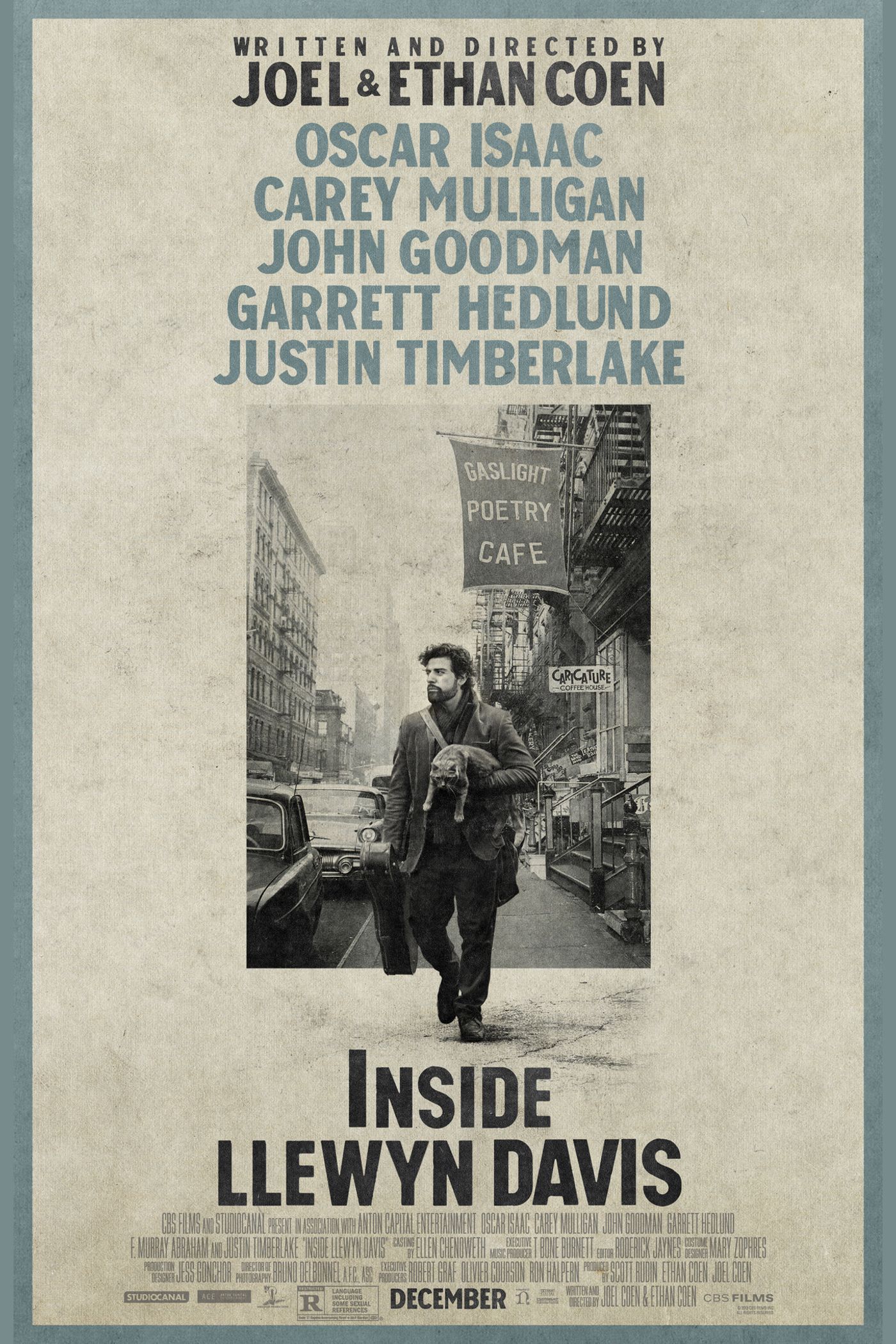The Coen Brothers have no shame in gut-punching audiences with sharp dismantling of characters or rude short-changing of narrative expectations, in ways that feel like a cinematic middle finger. While not an entirely unearned reputation, it willingly ignores the tender empathy the duo can extend to even the most audaciously unlikable of their characters, perhaps none more impervious than Llewyn Davis (Oscar Isaac) in Inside Llewyn Davis. On first watch, Llewyn Davis seems like miserable company, but on closer inspection, his story is a tough-love hug for someone clearly struggling with deep clinical depression that he has no way of confronting.
Llewyn Davis Buries Himself in Music To Cope With Grief
Llewyn Davis is a folk musician in 1960s Greenwich Village, who sloshes forward to his dream of becoming an authentic voice of his generation. He may frequently need to surf on the couches of people who barely tolerate him, accept lame gigs for chump change, and be stuck in a bitter-cold war with his ex, Jean (Carey Mulligan), but none of that is enough to distract him from his narrow vision. He tells himself he’s very content to trudge through the bitter snow for auditions and play the same songs at the same clubs each night if it means he’ll make it the way he wants to.
His fundamentals may be sound, but no amount of hustle can help him with what’s really wrong: his crippling character flaws and cavernous mental health, neither of which he will ever correctly identify as the biggest culprits of his dilemma. There may be a lot of flaws with Llewyn Davis, but most of it springs from his inability to properly care for himself or stop putting his music before everyone around him.
Oscar Isaac’s Llewyn Doesn’t Allow Himself To Grow Past His Trauma
Llewyn started out semi-famous as part of a folk music duo with his best friend, Mike (Marcus Mumford), until Mike died by suicide, leaving Llewyn to pick up the pieces. Rather than use this as a chance to reinvent himself, Llewyn seems to have voluntarily frozen himself in time, insisting that he’ll make it as a solo artist using the same songs he played with Mike and playing them exactly how the two of them did together. Worse yet, he projects his self-serious conviction onto other people in the most vicious of ways, barely hiding his contempt for recording songs he didn’t write and accusing those who ask to see him play as treating him like a circus act. Llewyn has allowed his unacknowledged grief over Mike’s death to make him that annoying hipster who smugly argues what “real music” is to anyone who will listen, subconsciously desperate for the validation. To paraphrase Jean: his identity is built too tightly around his misery, and he doesn’t want to grow past it.
‘Inside Llewyn Davis’ Depiction of Depression Is Both Comforting and Unsparing
All of this should make Llewyn a cancerous slog to endure, and yet it’s Oscar Isaac’s authentically soulful performance and the Coen brothers’ gently prodding direction that turn his journey into a cautionary fable on facing your issues. While the film does derive entertainment from Llewyn’s abrasive bullheadedness, it never excuses his behavior, as he’s constantly facing consequences left and right, like the cosmos are ensuring he’ll keep learning his lesson. Llewyn might never stop creating additional problems for himself, but he does make glacial progress towards recognizing that he has a problem at all, as signified in his admission that he knows his fatigue is something sleep can’t solve. He does try to make some situations right, like finding his neighbor’s cat and making peace with his father in a nursing home, even though both attempts blow up in his face. In the cruelest karmic twist of all, Llewyn is busy getting thrown out of his local café while an unknown Bob Dylan, the man who becomes everything Llewyn yearns to be, is taking the stage for the first time. It exposes Llewyn’s greatest flaw: unlike Dylan, Llewyn is unable to rise above his character flaws and transform himself into anyone other than…himself.

Related
Does Oscar Isaac Really Sing in ‘Inside Llewyn Davis’?
Before Poe Dameron saved the galaxy, Llewyn Davis was just trying to survive.
But I would argue Inside Llewyn Davis suggests that maybe there’s nothing wrong with that, so long as you make some kind of effort to either help yourself or accept who you are. Llewyn might never get bigger than Greenwich Village, but he seems content with his sisyphean lifestyle. He might not have the answers to his problems, but he’ll keep searching for them. One hopes he’ll be less insensitive to the headaches he causes others, but the Coens are smart enough not to suggest he’s been “cured” of his dilemma. Just because he suffers from deep depression doesn’t render him blameless for his actions, but it also doesn’t resign him to permanent stagnation. Llewyn Davis might be left lying in a gutter with his own blood in his mouth, but at least he’s contentedly smiling and looking forward to the next day, and that’s an enormously comforting sentiment to come from Joel and Ethan Coen.
Inside Llewyn Davis is available to watch on Pluto TV in the U.S.
Watch on Pluto TV

Inside Llewyn Davis
Set in 1961, this black comedy film follows a week in the life of Llewyn Davis, a struggling folk musician trying to balance his pursuit of musical success with his attempts to keep his life together.
- Release Date
- October 13, 2013
- Director
- Ethan Coen , Joel Coen
- Runtime
- 105
- Writers
- Joel Coen , Ethan Coen

